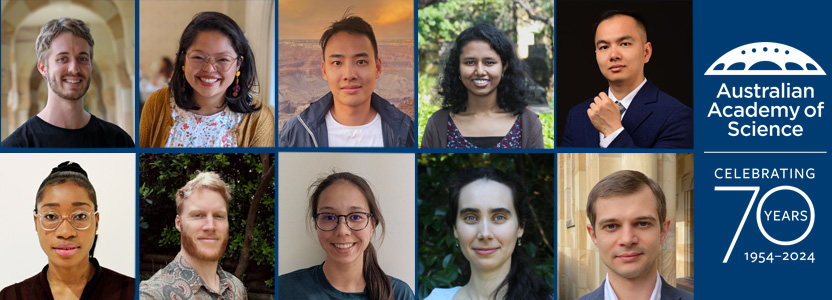
Ten early-career researchers from Australia will be heading to Lindau, Germany this year to attend the prestigious Lindau Nobel Laureate Meeting.
The annual event is expected to bring together 40 Nobel Laureates and 635 young scientists from more than 90 nations.
The 73rd Lindau Nobel Laureate Meeting is dedicated to physics and will be held from 30 June to 5 July 2024.
The Australian delegation’s participation in the Lindau Nobel Laureate Meetings is proudly supported through the Science and Industry Endowment Fund (SIEF) and administered by the Australian Academy of Science (AAS).
The Lindau SIEF-AAS Fellows will receive a grant to enable their attendance at the event and to take part in the SIEF Research Innovation Tour in Berlin, showcasing some of Germany’s finest research and development facilities related to medicine and physiology.
The delegation will be led by Professor Elaine Sadler AO FAA and supported by Professor Hans Bachor AM FAA.
The 10 PhD candidates and postdoctoral researchers selected in 2024 to attend this meeting are:
- Dr Barnali Das of CSIRO, whose research focuses on understanding magnetic massive stars and their potential connection with much cooler magnetic stars and planets
- Mr Jake Horder of the University of Technology Sydney, whose research focuses on cryogenic spectroscopy of solid state single photon sources for quantum technologies
- Ms Emily Kerrison of the University of Sydney, who is a PhD student in radio astronomy, using telescopes in Western Australia and around the world to hunt down supermassive black holes at the centres of other galaxies and understand what makes them tick
- Dr Duy Nguyen, who is an environmental fluid dynamicist at CSIRO, specialising in integrating physical-based and AI/ML modelling of water quality and quantity
- Ms Grace Tabi, who is PhD student at the Australian National University, and whose research focuses on perovskite materials and their applications in photovoltaics
- Mr Mark Watson of the University of Queensland, who is studying light-matter interactions on micron-scale systems establishing methodologies using Rotational Optical Tweezers to perform fast and precise microrheological measurements including studies of rotational inertia and the changing viscosity in the macropinocytosis pathway in macrophage immune cells
- Mr Simon Weng of the University of Sydney, whose research focuses on the diffuse gas surrounding galaxies and its impact on how galaxies form and evolve
- Ms Claire Yung, who is a PhD student at the Australian National University, studying how the ocean influences Antarctic ice shelf melt and vice versa, specifically trying to improve the accuracy of these processes in ocean and climate models for improved sea level rise projections.
Two SIEF-AAS Fellows, who attended the 70th meeting virtually, have also been invited to participate in-person and will travel with this year’s cohort to Lindau. They are:
- Dr W. Y. Sarah Lau, who is a research scientist at CSIRO with a focus on quantum technologies enabled by optics and photonics
- Dr Eugene Sachkou of La Trobe University, who is a postdoctoral researcher specialising in data science and sports data analytics.
The meeting will provide a unique opportunity for these exceptional early-career scientists to share their research, experiences and ideas, and gain inspiration from fellow emerging scientists and Nobel Laureates.








